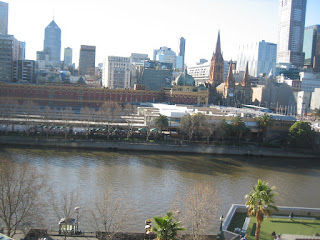Introduction
Laura Tingle (AFR 2nd
December 2016) reports that what is at play is “About a
government’s responsibility to protect the revenue due to taxpayers and its
responsibility to protect the constitution”.
Here is the story so far:
It’s all about a $1.7 billion pot of
money.
Central to the issues is a pot of $1.7
billion of money arising from a settlement in 2013 by the Bells Group bankers
(the Bell group went into liquidation in the early nineties) who lost their
case.
Creditors
making claims included the cash strapped Western Australian State Government whose
state -owned Insurance Commission of Western
Australia had already spent $240 million in litigation. Other creditors argued the government-owned Insurance Commission of Western Australia’s subordinated bonds ranked further back in the creditors’ queue. The Commonwealth of Australia Taxation Office was a substantive creditor with its tax liabilities approximating $480 million.
According to the Attorney General in April
2015 there had been an exchange of letters between the WA Treasurer and the
then Federal Treasurer, Joe Hockey, in relation to settling the Australian Taxations
claim(s).
This exchange of letters occurred just before
the Western Australian Office proceeded to introduce a bill to enable it to gain
control of the winding up proceedings in a timely manner as it saw fit. The
inference here is the WA claims would be secured. But in any event such a move appears to be extremely
unusual step to usher in state legislation over a matter already before the
courts and under federal jurisdiction the constitution is quite clear under
section 109 where there is inconsistency between state and federal laws then
the Federal laws shall prevail.
A Bill by Western Australia to
take control of winding-up proceedings.
Nevertheless in May 2015 the Western
Australian parliament introduced the Bell Group Companies Bill 2015 (WA)
to cover winding-up proceedings in a "timely manner". By 19 November
2015, the bill was law but on 27 November 2015, unsurprisingly some Bell
creditors launched a High Court challenge to the validity of the Bell
legislation.
High Court Challenge and
involvement by the Attorney General.
On 3 March 2016, the Attorney General claimed
his first personal involvement (apart from that of his office) and that this
was also the first time he became aware of the arrangement with former Federal
Treasurer Joe Hockey.
Apparently after discussion the decision was
taken that the Australian Taxation Office should intervene in the ongoing High
Court proceedings. The Australian Taxation Office lodged an application to the
High Court to take part in the case and be represented by the then
Solicitor-General, Justin Gleeson.
On 16 May 2016, the High Court of Australia
ruled against the WA Government and the Bell Legislation, finding that
the legislation was invalid under section 109 of the Constitution (Cth),
because of inconsistency between its provisions and the provisions of the Income
Tax Assessment Act 1936 (Cth) and the Taxation Administration Act 1953
(Cth).
Report in the News Daily
But in
the News Daily it was reported "The West Australian‘s report
claims the deal was scuttled by Mr Gleeson, who wrote a scathing submission to
the High Court on behalf of the Australian Tax Office — which was separately
trying to claw back $300 million — and that this strengthened the case against
Western Australia.
Mr
Gleeson’s intervention reportedly led to a “blazing row” between Senator
Brandis and his West Australian counterpart Michael Mischin, and contributed to
the break-down in the relationship between Mr Gleeson and Senator Brandis.
The Solicitor-General resigns
Justin Gleeson SC (SC equivalent of a QC) was the
Solicitor-General of the Commonwealth of Australia until his resignation
effective 7 November 2016, claiming
his relationship with Attorney-General George Brandis is "irretrievably
broken".
In his letter which you can read in the links here to the ABC
article Gleeson claims a lack of consultation on laws on marriage equality and
anti – terrorism laws. But what may have been the final straw concerned proposed
provisions to preclude him from providing legal advice to anyone in the
Government without the permission of the Attorney-General. This was a matter
about which he claims he was not consulted but which the Attorney argues he
was. Gleeson also maintains he was careful to set up protocols to ensure the Attorney-General
was always copied in to all matters before him or arising independent to that
which arose from the Auditor General.
Mr Gleeson's intervention (as I have previously
outlined) in the legal case before the high court was reportedly the reason for
a "blazing row" between the Attorney General and his West Australian
counterpart.
This event and matters leading up to it is reported
as the reason for the break down in the relationship between the Solicitor-General
and the Attorney General.
Conclusion
Laura Tingle aptly concludes her article “knowing what the Attorney General did about $300
million of taxpayer’s funds being siphoned off in a clear breach of the
constitution, and why, should remain a question that doesn’t go away”. References
http://www.abc.net.au/news/2016-10-24/justin-gleeson-resigns-as-solicitor-general/7960632
http://www.abc.net.au/news/2016-10-06/brandis-denies-misleading-parliament-over-gleeson-stoush/7907512
http://www.abc.net.au/news/2016-11-27/greens-call-for-parliamentary-inquiry-into-brandis-secret-deal/8060862




